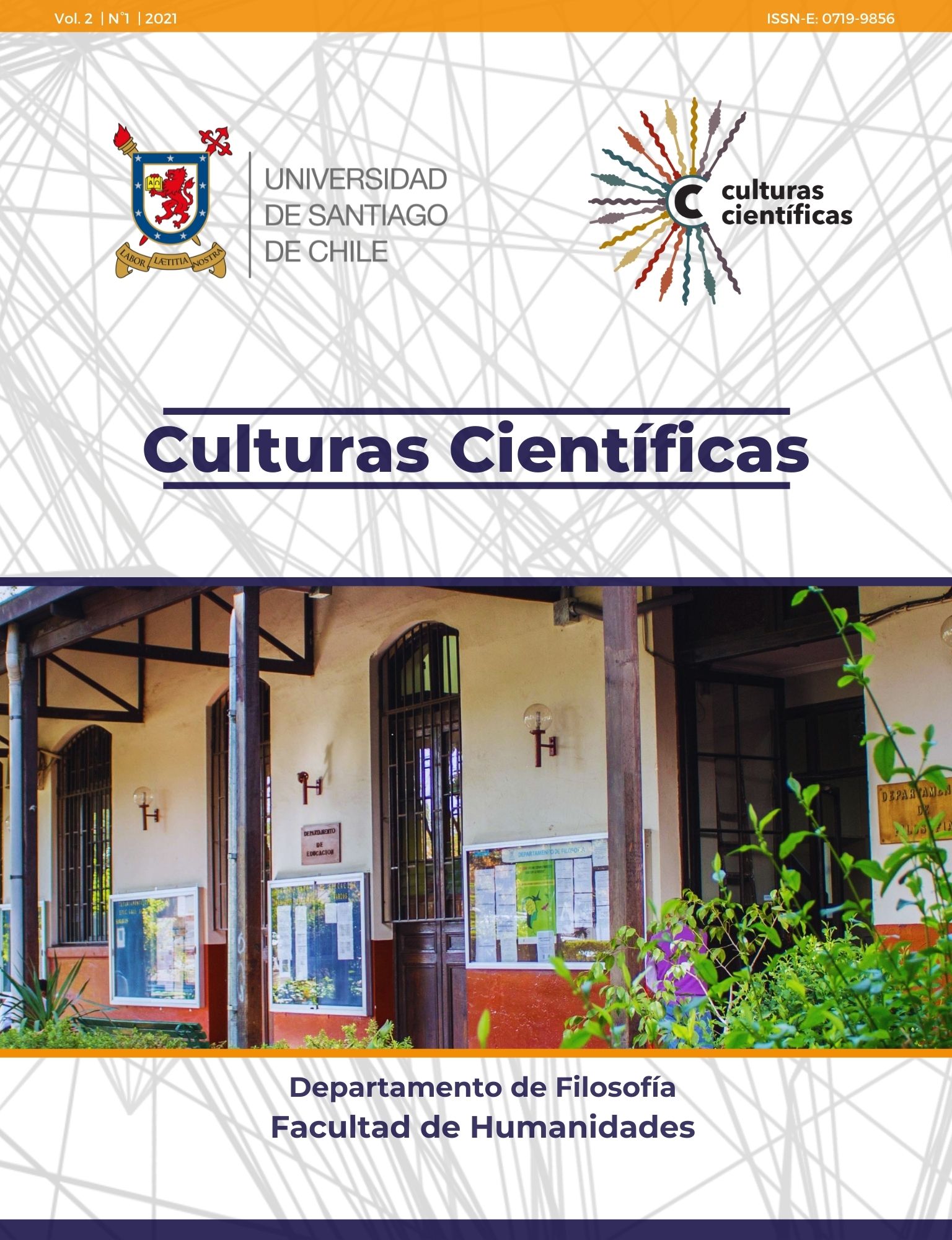Evidencia y Explicación en Economía
modelos, RCTs y su amalgama
DOI:
https://doi.org/10.35588/cc.v2i1.4907Palabras clave:
Causalidad, Mecanismos, Capacidades, Epistemología de la Economía, Generalización de EvidenciaResumen
En economía, la investigación se divide en dos grandes metodologías: los modelos teórico-matemáticos y los estudios empíricos. Estudiando modelos teóricos y métodos empíricos (ejemplificados en Randomized Controlled Trial (i.e. RCT)) se da cuenta de las limitaciones de ambos métodos. Se concluye que ninguno de estos puede generar explicaciones de cómo en realidad suceden las cosas, sino que solo de cómo posiblemente suceden. La razón es que ambos necesitan un enlace interpretativo que permita extrapolar desde su propio sistema (i.e. el del modelo y el del estudio empírico, respectivamente) hacia un sistema objetivo.
Los modelos tienen dominio general y pueden dar cuenta de mecanismos. Los RCTs, al contrario, son válidos internamente (si cumplen ciertas condiciones) y están conectados al mundo real, pero su dominio es muy específico. Aunque ninguno logre responder preguntas amplias de un fenómeno de interés, pueden complementarse para generar extrapolaciones más confiables sobre un sistema objetivo. Sin embargo, esto solo podrá hacerse si se conocen bien los mecanismos y el contexto en que ocurre una evidencia.
Descargas
Referencias
Alexandrova, A. (2008). "Making models count". Philosophy of Science, 75(3): 383–404. http://dx.doi.org/10.1086/592952
Alexandrova, A. y Northcott, R. (2009). "Progress in economics: Lessons from the spectrum auctions". En K. Harold y R. Don, The Oxford Handbook of Philosophy of Economics. Oxford University Press. doi: https://doi.org/b2n56c
Angrist, J. D. y Pischke, J. S. (2010). "The credibility revolution in empirical economics: How better research design is taking the con out of econometrics". Journal of economic perspectives, 24(2): 3–30. doi: https://doi.org/cd563q
Banerjee, A., Duflo, E., Goldberg, N., Karlan, D., Osei, R., Parienté, W., Shapiro, J., Thuysbaert, B. y Udry, C. (2015). "A multifaceted program causes lasting progress for the very poor: Evidence from six countries". Science, 348(6236): 1260799-1/16. doi: https://doi.org/4p7
Batterman, R. W. (2005). "Critical phenomena and breaking drops: Infinite idealizations in physics". Studies in history and philosophy of science part B: Studies in history and philosophy of modern, 36(2): 225–244. doi: https://doi.org/fnm99b
Bokulich, A. (2011). "How scientific models can explain". Synthese, 180(1): 33-45. doi: https://doi.org/br8vd2
Cartwright, N. (1989). Nature’s capacities and their measurement. Clarendon. doi: https://doi.org/cpkt2j
Cartwright, N. (2007). "Are rcts the gold standard?" BioSocieties, 2(1): 11–20. doi: https://doi.org/bwzwrt
Cartwright, N. (2009). "What is this thing called "efficacy"?". En C. Mantzavinos, Philosophy of the social sciences: philosophical theory and scientific practice, 185-206. Cambridge University Press. doi: https://doi.org/gpnk
Craver, C. F. (2006). "When mechanistic models explain". Synthese, 153(3): 355–376. doi: https://doi.org/ct73tv
de Regt, H. W. (2004). "Discussion note: Making sense of understanding". Philosophy of Science, 71(1): 98–109. doi: https://doi.org/d3hzdj
de Regt, H. W., y Dieks, D. (2005). "A contextual approach to scientific understanding". Synthese, 144(1): 137–170. doi: https://doi.org/dsh5t5
Deaton, A., y Cartwright, N. (2018). "Understanding and misunderstanding randomized controlled trials". Social Science & Medicine, 210: 2–21. doi: https://doi.org/gd5qgt
Doganova, L. (2015). "Economic models as exploration devices". Journal of Economic Methodology, 22(2): 249–253. doi: https://doi.org/gpnn
Dray, W. (1968). "On explaining how-possibly". The Monist, 52(3): 390–407. doi: https://doi.org/fz8nz8
Duran, D. (2014). De la Economía política a la ciencia económica: Dos tensiones que explican el cambio de objeto de estudio del fenómeno económico (Tesis de Magister). Santiago: Universidad de Santiago de Chile.
Elgin M. y Sober E. (2002). "Cartwright on Explanation and Idealization". En Earman J., Glymour C., Mitchell S. (eds) Ceterus Paribus Laws. Dordrecht: Springer
Euler, L. (1741). "Solutio problematis ad geometriam situs pertinentis". Commentarii academiae scientiarum Petropolitanae, 8: 128–140.
Fevereau, J. (2016). "On the analogy between field experiments in economics and clinical trials in medicine". Journal of Economic Methodology, 23(2): 203–222. doi: https://doi.org/ghtn7h
Fletcher, S. C., Landes, J., y Poellinger, R. (2019). "Evidence amalgamation in the sciences: an introduction". Synthese, 196: 3163–3188. doi: https://doi.org/gpns
Galiani, S., Gertler, P. J., Undurraga, R., Cooper, R., Martínez, S. y Ross, A. (2017). "Shelter from the storm: Upgrading housing infrastructure in latin american slums". Journal of urban economics, 98: 187–213. doi: https://doi.org/f93x9k
Gertler, P. J. y Boyce, S. (2001). "An experiment in incentive-based welfare: The impact of progresa on health in Mexico". En Royal Economic Society Annual Conference 2003, 85. Royal Economic Society. URL: https://ideas.repec.org/s/ecj/ac2003.html
Graue, E., Hatch, K., Rao, K., y Oen, D. (2007). "The wisdom of class-size reduction". American Educational Research Journal, 44(3): 670–700. doi: https://doi.org/dwhdtk
Grüne-Yanoff, T. (2009). "Learning from minimal economic models". Erkenntnis, 70(1): 81–99. doi: https://doi.org/cxdkft
Grüne-Yanoff, T. (2013). "Genuineness resolved: a reply to Reiss’ purported paradox". Journal of Economic Methodology, 20(3): 255–261. doi: https://doi.org/f22p98
Guala, F. (2005). The methodology of experimental economics. Cambridge University Press. doi: https://doi.org/frsd6b
Hamermesh, D. S. (2013). "Six decades of top economics publishing: Who and how?". Journal of Economic Literature, 51(1): 162–72. doi: https://doi.org/gdgzp6
Harrison, G. W. y List, J. A. (2004). "Field experiments". Journal of Economic literature, 42(4): 1009– 1055. doi: https://doi.org/bbnhxw
Hausman, D. (1992). "Economics as an inexact and separate science". En The Inexact and Separate Science of Economics (pp.205-226). Cambridge: Cambridge University Press. doi: https://doi.org/bbnhxw
Hempel, C. (1970). Aspects of Scientific Explanation: And Other Essays in the Philosophy of Science. New York: Free Press.
Hempel, C. G. y Oppenheim, P. (1948). "Studies in the logic of explanation". Philosophy of science, 15(2): 135–175. doi: https://doi.org/d6x7fq
Henderson, L. (Spring 2020 Edition). The Problem of Induction. The Stanford Encyclopedia of Philosophy, Edward N. Zalta (ed.). URL: https://plato.stanford.edu/archives/spr2020/entries/induction-problem/
Hindriks, F. (2008). False models as explanatory engines. Philosophy of the Social Sciences, 38(3): 334–360. doi: https://doi.org/ds38zq.
J-PAL. (2012). Deworming: A best buy for development. Innovations for poverty action (IPA). Consultado el 15 de junio de 2021. URL: https://www.poverty-action.org/publication/deworming- best-buy-development.
Kitcher, P. (1981). "Explanatory unification". Philosophy of science, 48(4), 507–531. doi: https://doi.org/cgbn8n
Kuorikoski, J. y Ylikoski, P. (2015). "External representations and scientific understanding". Synthese, 192: 3817–3837. doi: https://doi.org/f3n5vr
Lange, M. (2013). "What makes a scientific explanation distinctively mathematical?". The British Journal for the Philosophy of Science, 64(3): 485–511. doi: https://doi.org/gftk2c
Lange, M. (2016). Because without cause: Non-causal explanations in science and mathematics. Oxford University Press. doi: https://doi.org/gpnt
Lipton, P. (2009). "Understanding without Explanation". En de Regt H., Leonelli S., y Eigner K. (eds.), Scientific Understanding: Philosophical Perspectives (pp. 43-63). Pittsburgh: University of Pittsburgh Press. doi: https://doi.org/gpnv
List, J. A. (2007). "Field experiments: a bridge between lab and naturally occurring data". The BE Journal of Economic Analysis & Policy, 5(2): 1-47. doi: https://doi.org/bh2pjd
Mäki, U. (1992). "On the method of isolation in economics". Poznan Studies in the Philosophy of the Sciences and the Humanities, 26: 19-54.
Mäki, U. (2009). "MISSing the world. models as isolations and credible surrogate systems". Erkenntnis, 70(1): 29–43. doi: https://doi.org/cvz5nd
McMullin, E. (1978). "Structural explanation". American Philosophical Quarterly, 15(2): 139–147.
McMullin, E. (1985). "Galilean idealization". Studies in History and Philosophy of Science Part A, 16(3): 247–273. doi: https://doi.org/b6fm57
Mirowski, P. (1992). More heat than light. Cambridge Books. doi: https://doi.org/bkjn36
Mosteller, F. (1995). "The tennessee study of class size in the early school grades". The future of children, 5(2): 113–127. doi: https://doi.org/crc855
Panhans, M. T. y Singleton, J. D. (2017). "The empirical economist’s toolkit: from models to methods".
History of Political Economy (49) (Supplement)): 127–157. doi: https://doi.org/ggthz8
Pincock, C. (2007). "A role for mathematics in the physical sciences". Noûs, 41(2): 253–275. doi: https://doi.org/dnqsnr
Potochnik, A. (2017). Idealization and the Aims of Science. University of Chicago Press. doi: https://doi.org/gpnw
Reiss, J. (2006). Error in economics: towards a more evidence–based methodology. London: Routledge. doi: https://doi.org/c83f3q
Reiss, J. (2012). "The explanation paradox". Journal of Economic Methodology, 19(1): 43–62. doi: https://doi.org/gg8nq4
Reutlinger, A. (2016). "Is there a monist theory of causal and noncausal explanations? the counterfactual theory of scientific explanation". Philosophy of Science, 83(5): 733–745. doi: https://doi.org/gpnx
Reutlinger, A. (2017). "Explanation beyond causation? new directions in the philosophy of scientific explanation". Philosophy Compass, 12(2): e12395. doi: https://doi.org/gpnz
Rubin, D. B. (2005). "Causal inference using potential outcomes: Design, modeling, decisions". Journal of the American Statistical Association, 100(469): 322–331. doi: https://doi.org/cqsb7s
Schelling, T. (2006). Micromotives and macrobehavior. WW Norton & Company. Strevens, M. (2008). Depth: An account of scientific explanation. Harvard University Press.
Sugden, R. (2009). "Credible worlds, capacities and mechanisms". Erkenntnis, 70(1): 3–27. doi: https://doi.org/bvvcnw
Suppes P. (1969). "Models of Data". En Studies in the Methodology and Foundations of Science. Synthese Library (Monographs on Epistemology Logic, Methodology, Philosophy of Science, Sociology of Science and of Knowledge, and on the Mathematical Methods of Social and Behavioral Sciences), vol 22. Dordrecht: Springer. doi: https://doi.org/gpn2
Svorenčík, A. (2015). "The experimental turn in economics: a history of experimental economics".
University of Utrecht: Utrecht School of Economics Dissertation Series #29.
Trout, J. (2002). "Scientific explanation and the sense of understanding". Philosophy of Science, 69(2): 212–233. doi: https://doi.org/dj8d3h
Urbach, P. (1985). "Randomization and the design of experiments". Philosophy of Science, 52(2): 256–273. doi: https://doi.org/dkkspt
van Frassen, B. C. (1980). The scientific image. Oxford University Press. doi: https://doi.org/cjr6gp Verreault-Julien, P. (2019). Understanding with models. Ph.D. thesis, Erasmus University of Rotterdam.
Weisberg, M. (2012). Simulation and similarity: Using models to understand the world. Oxford University Press. doi: https://doi.org/gpn3
Wimsatt, W. C. (1987). "False models as means to truer theories". En M. H. Nitecki y A. Hoffmann (eds.), Neutral models in biology (pp.23-55). Oxford: Oxford University Press.
Woodward, J. (2000). "Explanation and invariance in the special sciences". The British Journal for the Philosophy of Science, 51(2): 197–254. doi: https://doi.org/fn7znh
Woodward, J. (2003). Making things happen: A theory of causal explanation. New York: Oxford university Press. doi: https://doi.org/c68mpx
Ylikoski, P. y Aydinonat, N. E. (2014). "Understanding with theoretical models". Journal of Economic Methodology, 21(1): 19–36. doi: https://doi.org/gd8tpq
Descargas
Enviado
2021-04-25Publicado
Número
Sección
Licencia
Derechos de autor 2021 Ignacio Andrés Torres Ulloa

Esta obra está bajo una licencia internacional Creative Commons Atribución 4.0.











